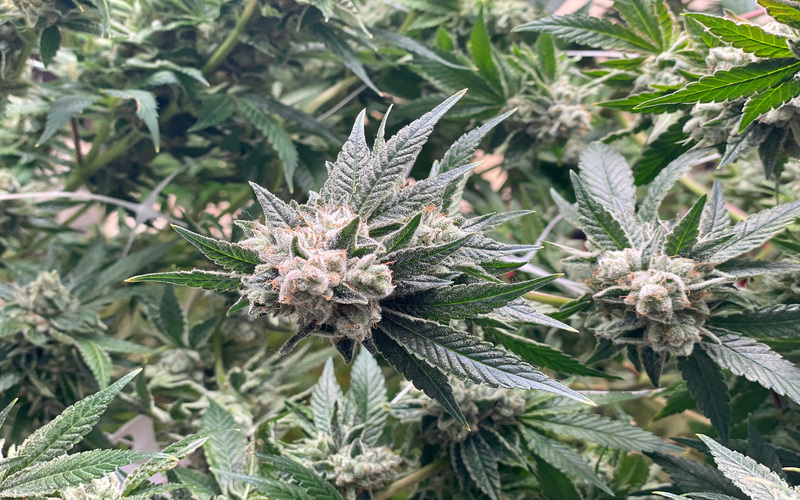“… Nothing is certain except death and taxes.” – Benjamin Franklin
Although paying federal taxes is compulsory for all U.S. corporations, no industry has a more crippling tax structure than legal cannabis. And while cannabis is prohibited federally, for the District of Columbia and states where cannabis is authorized for medicinal and/or adult use, plant-touching businesses are still subject to IRS taxes. (The exception is that U.S. territories — the U.S. Virgin Islands, Guam, Puerto Rico and the Northern Mariana Islands — are exempt from IRS reporting.)
As a plant-touching business owner, regardless of your interpretation of the IRC 280E, the rules must be followed to the letter of the law. It’s not unusual for canna-businesses to learn of the IRC 280E’s complexities and limitations after they’ve filed their taxes.
What is the IRC 280E?
Angela Mays, founder and CEO of The Blunt Accountant, explains the tax code that governs the industry: “The IRC 280E says that no deduction or credit is allowed for businesses that ‘traffic’ in Schedule 1 and Schedule 2 drugs, meaning that plant-touching can’t take deductions that ‘normal’ businesses can or take advantage of tax credits the IRS ordinarily allows. And if it seems punitive, there’s precedent for this.”

With the IRS, Lightning Never Strikes Twice
In 1974, a Minneapolis-based drug dealer filed his taxes the way we all do annually. Jeffrey Edmondson reported that the cost of goods sold (COGS) he incurred purchasing 1.1 million amphetamine pills, 100 pounds of cannabis, and 13 ounces of cocaine came to $105,300.
Edmondson wrote off two-thirds of the 30,000 miles of wear and tear on his car, packaging costs, a portion of his rent, long-distance calls, and scales to weigh his product.
Initially, the IRS allowed these deductions but later filed a lawsuit against Edmondson. Although Edmondson ultimately won his case in 1981, the IRS wasn’t about to let lightning strike twice. In 1986, the IRS created IRC 280E for all businesses dealing in drugs that fall under Schedules 1 and 2.
Navigating the Complexities of IRC 280E
Absent knowledge of the IRC 280E, it makes sense for new licensees and those with existing plant-touching businesses to look for a general accountant to manage the company’s taxes. Unfortunately, this could prove a costly error.
Calyxeum is a Black- and female-owned cultivator and manufacturer licensed for both medical and adult use in Detroit. Its dried flower, signature line of gummies, and other extracts are in approximately 150 dispensaries.
When co-owners Rebecca Colett (CEO) and LaToyia Rucker (COO) began interviewing potential accountants about their expertise in cannabis accounting, most said they had “plenty of experience,” but when it came down to it, they didn’t understand the tax code.

Rebecca explained, “Our business hasn’t been audited, thankfully, but when LaToyia and I scrutinized our monthly reporting and things of that nature, we noticed some gaps. We made the transition to a canna-accountant pretty quickly.”
“From our cultivator standpoint, we look at everything it takes for us to grow our cannabis. This means our standard operating costs running the grow facility. One of the reasons we didn’t opt for a retail shop is because of the inability of dispensaries to write a lot of things off because they are retailers and not wholesalers.”
Mays concurs. “While it looks from the outside that plant-touching businesses are raking in all this money, they can be taxed upwards of 80%. It’s all dependent upon the company’s gross profit. You are able to allocate some of what we call ‘below-the-line expenses’ into your COGS.”
Ronald Williams is the CFO of Mr. Z Craft Cannabis of Middlebury, Vermont, a majority Black-owned 4,000-square foot cultivation he co-founded with his best friends from childhood, Max Eingorn and Zachary Tyson. They had no hedge money, so together, they raised $2.5 million to launch Mr. Z Craft Cannabis.
Knowing they’d be on the hook for rent while the state went through its approval process, they bought the building where they use regenerative agriculture and organic best practices to grow their cannabis.
Williams explains, “We created a real estate holding company, which has a relationship with Mr. Z Craft Cannabis. Through the real estate holding company, we can actually write things off.”

“Prior to getting into cannabis, I worked as a corporate banker focused on risk management. Financial literacy is obviously a huge barrier to entry into the cannabis industry, particularly for communities of color. Not only do we want to be in compliance, but we also want to help other Black and Brown people who are trying to start a cannabis business with the things we learned from our own cannabis accountant. I wasn’t an accountant; I was a banker, and I’m comfortable with numbers, but I’d advise any plant-touching business to hire a cannabis accountant from the outset.”
“For example, I’ve heard many new licensees say, ‘Oh, I’ll have this management company oversee everything,’ until they realize the management company is also subject to IRC 280E. I ask myself, ‘what if I hadn’t had my background and my partners Zack and Max hadn’t had experience with cannabis law and sales, respectively? How do most of them figure it out? Wait until they’re in business and screw up, or worse, are audited?”
Mays came to cannabis following a 25-year career in Big 4 Accounting focusing on audit readiness and fraud prevention. Mays has a tool to help new licensees called the CannAccounting in a Box (CAiaB). CAiaB is a proprietary turnkey solution that includes everything needed to set up a 280E-compliant accounting operation before or after doors open for business.
“I noticed how ill-prepared new licensees were before they hired me, so I created CannAccounting in a Box. Whether they hire me or want to keep their canna-accountant, CAiaB includes accounting policies and standard operating procedures that focus on the three areas that the IRS will audit. I want all plant-touching businesses to be prepared for a potential audit.”
This article first appeared in Volume 5 Issue 1 of Cannabis & Tech Today. Read the full issue here.









